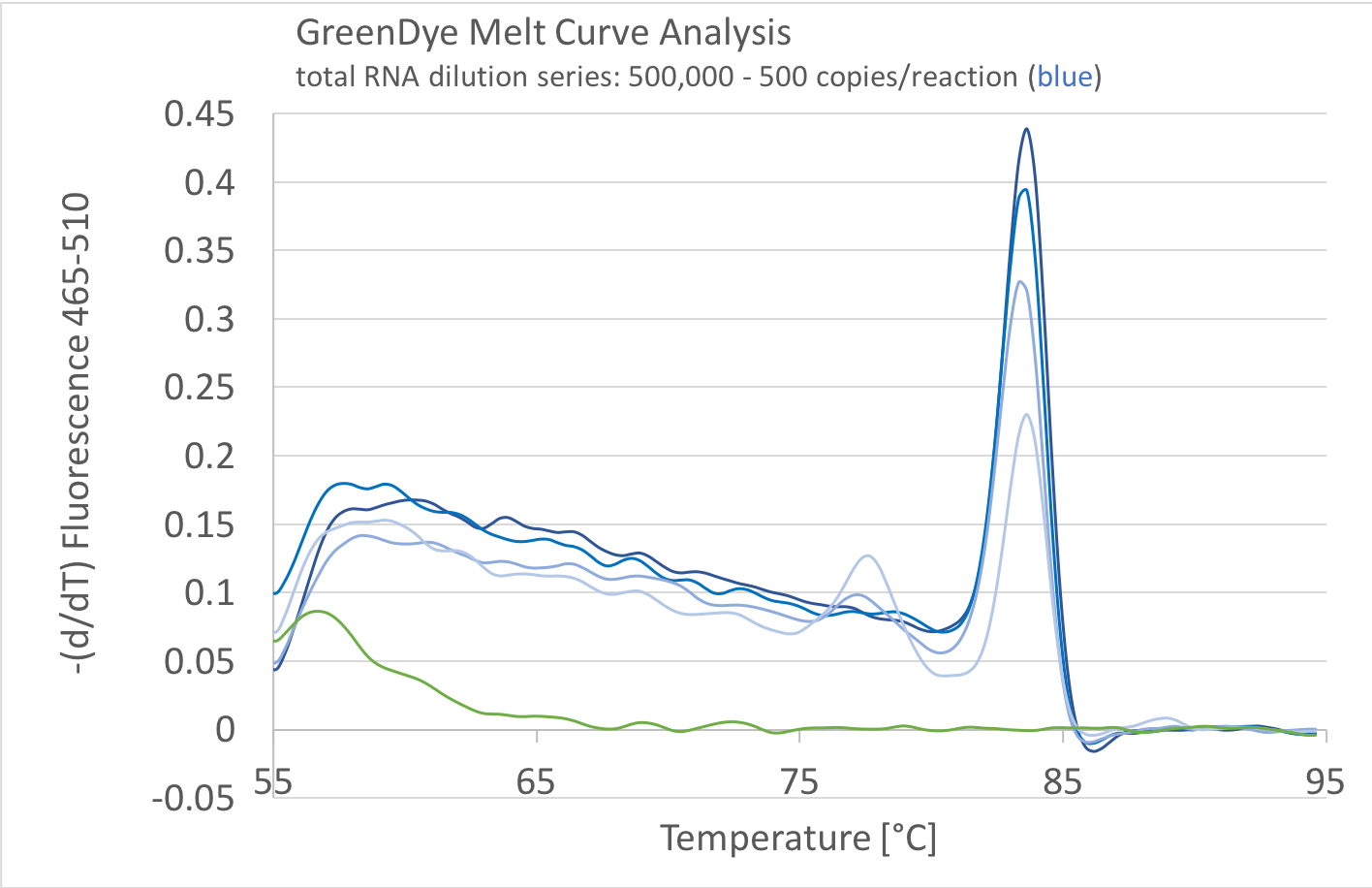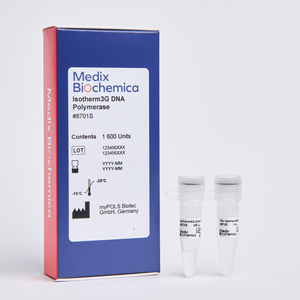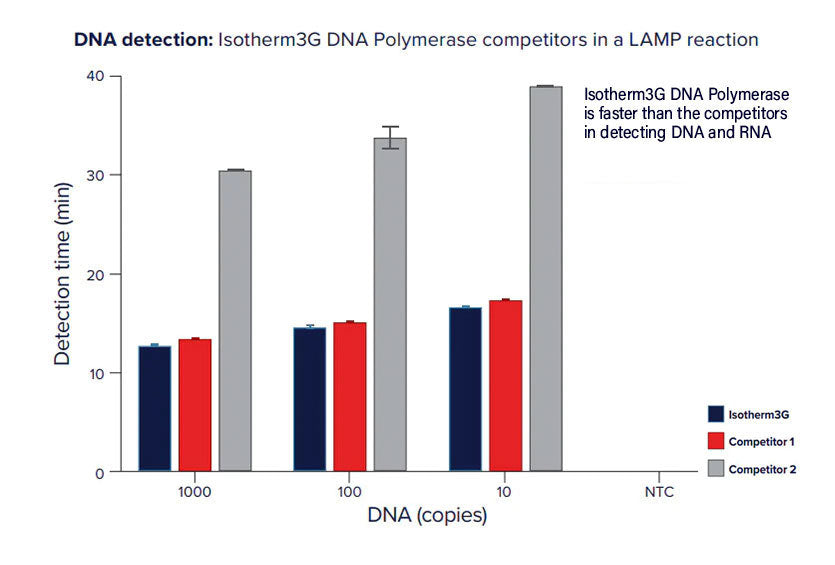RT-PCR becomes easier once again
zero-step RT-PCRs
Be quick! No isothermal reverse transcription step is needed: A fast start function due to a hotstart aptamer and the engineered, truly thermostable Taq DNA polymerase with reverse transcriptase activity allows immediate cycling.
Even directRT-PCRs are possible like this: Sample extraction and sample lysis is not necessary as immediate hot PCR cycling conditions can brake cell- and virus membranes. Please see our published references to this product.

Superior Performance
Volcano3G is the next generation of our Volcano2G with an improved performance. It offers a variety of applications for a precise and rapid qPCR. It is applicable with common thermal cycling protocols and “zero-step” RT-PCR protocols direct from RNA. As demonstrated here, artificial HPRT1 mRNA was detected in a 10-fold dilution series by using a probe-based qPCR assay and a common thermal RT-PCR protocol.
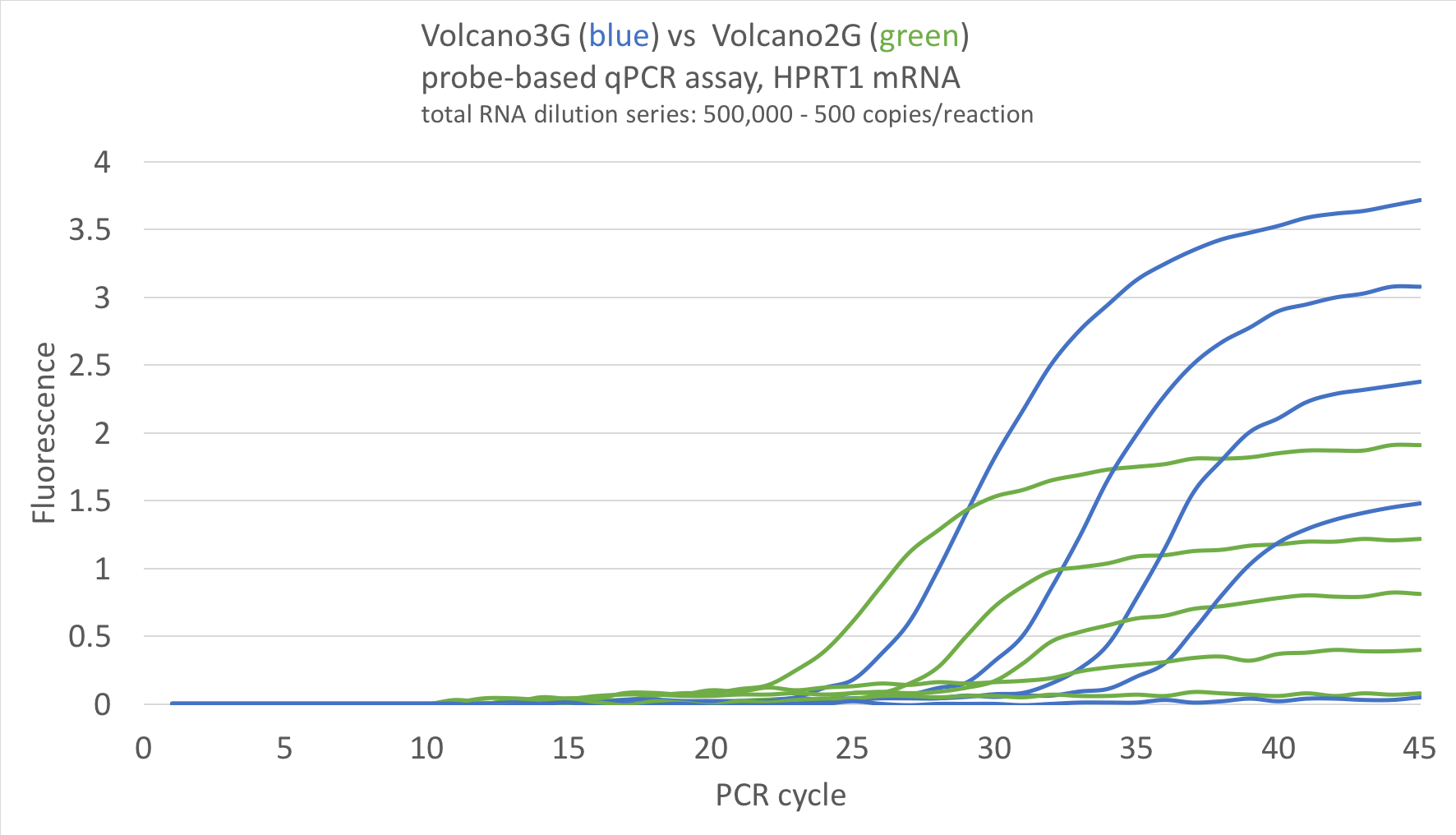
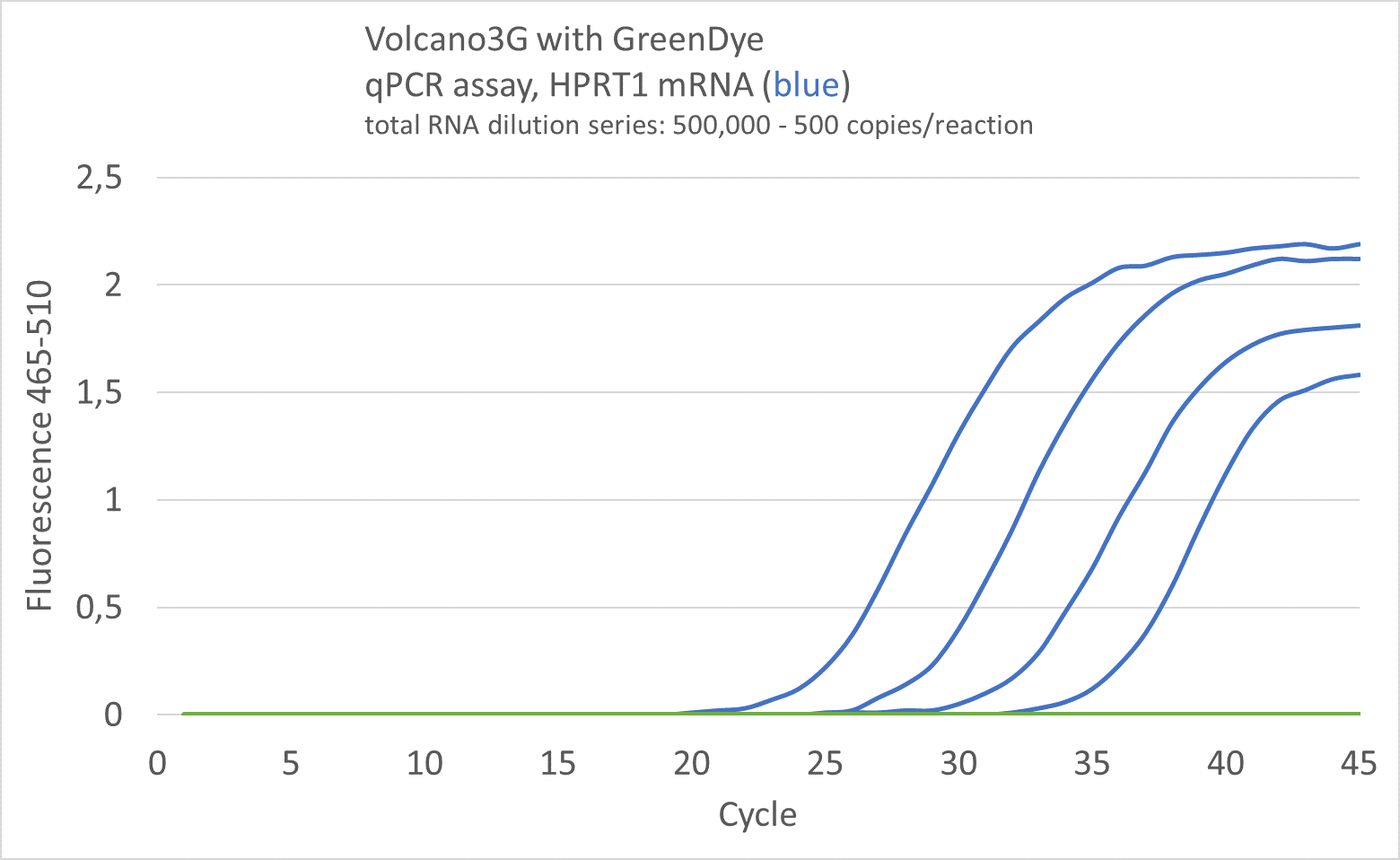
Improved Sensitivity
Volcano3G shows an improved detection of mRNA down to 500 total copies, which is clearly distinguishable from the No Template Control (NTC). The brighter fluorescent signal provided by the Volcano 3G Master Mix enables an easy and precise quantification. Volcano3G RT-PCR mix showed to be more sensitive than our Volcano2G RT-PCR mix by a factor of 10. Here, artifical HPRT1 mRNA was detected down to 500 copies with Volcano3G RT-PCR 2x Master mix that contains a sensitive DNA binding dye with negligible polymerase inhibition.
Melt your DNA, not your brain
Volcano3G RT-PCR 2x Master mix with GreenDye is suitable for high resolution melting (HRM) experiments, allowing you to quickly identify unspecific amplicons and thus save time and effort when optimizing your PCR.
